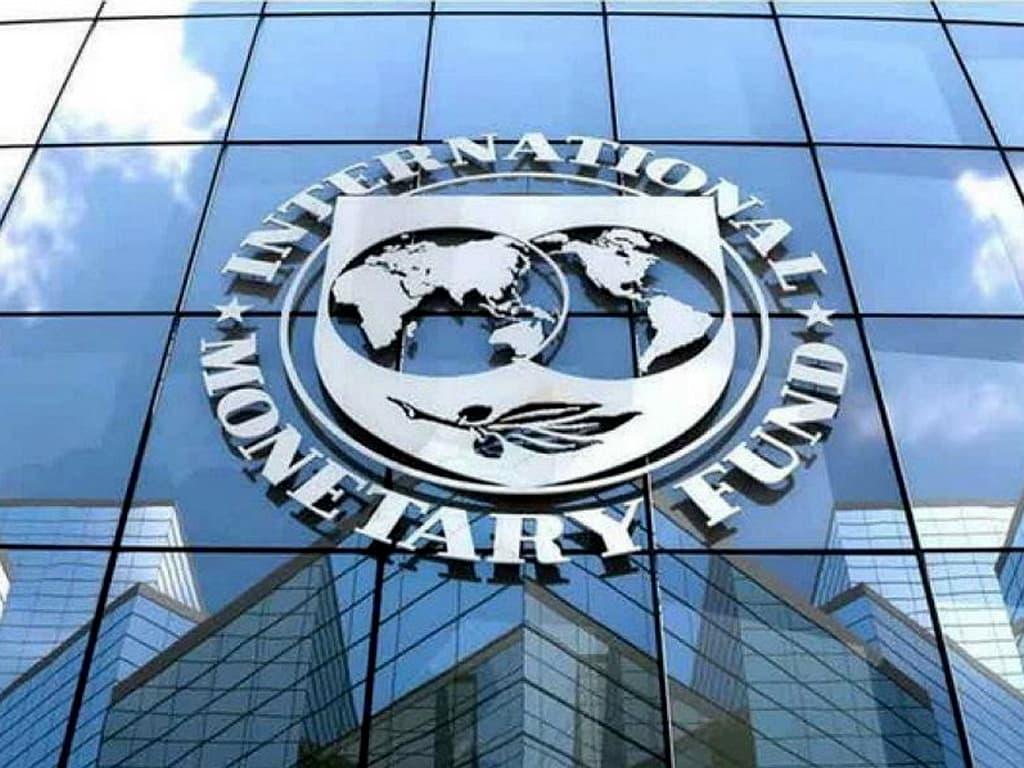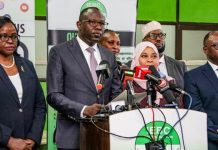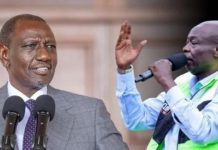By Faridah N Kulumba
Africa-Press – Kenya. The International Monetary Fund (IMF) is probing for stiffer graft checks on bank transactions in Kenya amidst growing concerns about money laundering by corruption networks.
IMF concern
According to the IMF’s appraisal report. Kenya has recently witnessed an increase in suspected money-laundering schemes, with billions of shillings seized from companies and individuals who could not explain the source of their wealth.
Past incidents
The government of Kenya has this year seized about Sh15 billion from individuals and companies in Nigeria with the bulk of the money suspected to be from card fraud or remittance done by payment service providers. The biggest cash seizure from the west African nation belonged to start-up firm Flutterwave with Kenyan authorities believing that the Sh6.2 billion in 62 bank accounts is part of card fraud and money laundering schemes.
Also, last year in December Kenya’s Asset Recovery Agency seized about Ksh 108 million from a woman residing in Kiambu County on suspicion that the money was part of a money laundering scheme.
The U.S warning
Recently the United States Department’s report warned of laxity among Kenyan officials in the global fight against money laundering, with officials tipping suspects to move assets before the seizure.
The INCSR report
The annual International Narcotic Control Strategy Report (INCSR) suggested that mobile lending platforms on some mobile telephone companies were not closely regulated, while proximity to Somalia has made Kenya an “attractive destination for funds from unregulated Somalia sectors.
IMF suggested the use of intelligence tools
IMF proposed that Kenya should intensify checks on corruption-related money laundering risk in banks and other higher-risk sectors by using financial intelligence tools. Anti-money laundering and counter-financing of terrorism supervision should be intensified to mitigate corruption-related money laundering risk in those sectors and make greater use of financial intelligence.
IMF’s past conditions for Kenya
At the beginning of last, the IMF imposed tough conditions for cash-strapped Kenya following the approval of a new multibillion-shilling loan. The IMF’s conditions on the approved USD2.34 billion (about Ksh257 billion) followed a public outcry over the Kenya government’s growing appetite for new loans amid runaway corruption in the public sector.
Tough conditionals- The IMF demanded that all public servants declare their wealth and that the cash-strapped government makes public the ownership details of all companies that are awarded public tenders as a way of curbing rampant theft of taxpayer funds.
IMF’s put pressure on Kenya
In June this year, the IMF pressured Kenya to disclose the identity of secret shareholders in firms with State contracts and prosecute those implicated in graft, including the Covid-19 scandal. The IMF Deputy Managing Director Antoinette Sayeh insisted that unmasking shareholders who secretly benefit from State deals through intermediaries disclosing and prosecuting culprits of the corrupt deals will reduce the loss of public funds to graft.
IMF involvement in Kenya’s affairs
The IMF has worked collaboratively with Kenya on three missions Including furthering international monetary cooperation, encouraging the expansion of trade and economic growth, and discouraging policies that would harm prosperity. Last year while IMF was imposing tough conditions on Kenya after the approval of a multibillion-shilling loan, showed that they wanted more specific action and implementation timeline than the Kenyan government has been committed to forcing.
The concrete measures included completing a draft blueprint that will identify necessary actions and legal reforms to enhance governance by July 2021 supported by IMF, developing an integrated monitoring and reporting system by September 2021, establishing a performance management monitoring and evaluation framework, and initiating a review of institutional structures.
Sectors needed reforming- high on the IMF’s list of dement for reforms is the requirement that nine state-owned enterprises (SOEs) are overhauled to either return to profitability or to start operating more efficiently.
The nine cooperations- The government of Kenya committed itself to auditing nine key parastatals and reforming them including Kenya Airways (KQ), Kenya Airports Authority, Kenya Railways Corporation, Kenya Power, Kenya Electricity Generating Company, Kenya Ports Authority, and the three largest public universities. The government is also yet to conclude an audit of Covid-19-related spending and publication of the ownership of companies awarded public contracts, a step the IMF said is required to enhance transparency in governance.
Recent IMF loan to Kenya
In July this month, the IMF approved the disbursement of a USD235.6 million loan to Kenya as the East African nation met the lender’s targets and, made progress in addressing debt vulnerabilities. The approval brings the IMF’s total disbursements to Kenya to USD1.21 billion, out of a total of about USD2.34 billion available under a 38-month program approved in April 2021, the Washington-based lender said in an emailed statement. The financing was approved after the fund completed its own review.
For More News And Analysis About Kenya Follow Africa-Press






